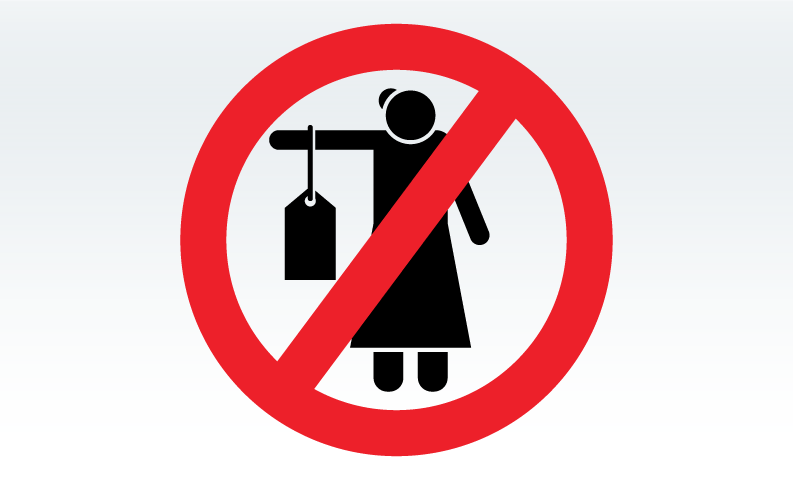Dr Paul Hedayati
The Australian Modern Slavery Act: Implicit Messages for Corporations

Is sustainability a state of being? Can a business claim to be sustainable, or will it be sustainable in two or three years?
The Australian Modern Slavery Act 2018 (hereafter referred to as the Act) is designed to combat modern slavery by mandating individual businesses or a group of entities under the Australian Accounting Standards, with a consolidated annual revenue of at least AU$100 million over a twelve-month reporting period, to disclose and address the potential risks of modern slavery within their operations and supply chains.
The Act presents itself as both a challenge and an opportunity for corporations, depending on the degree to which they comply with its provisions. For some corporations, especially those with complex global supply chains, meeting the Act’s requirements may pose significant challenges. Implementing anti-slavery systems, conducting due diligence, and monitoring supply chain practices might demand substantial resources, time, and expertise. Non-compliance with the Act could result in reputational damage, exacerbating the challenges faced by corporations.
On the other hand, embracing the Act’s requirements can also be viewed as an opportunity for corporations to demonstrate their commitment to ethical business practices and social responsibility. By taking proactive steps to address modern slavery risks, corporations can enhance their reputation as responsible and conscientious entities. Complying with the Act can foster greater transparency, build trust with stakeholders, and attract socially conscious consumers and investors. Moreover, a strong commitment to eradicating modern slavery can positively impact employee morale and engagement, as staff members take pride in working for an organization that upholds human rights.
Since the Act came into effect, I have been working in a consulting capacity with multiple corporations to assist them in drafting and submitting their modern slavery statements. Through this experience, I have had the opportunity to uncover implicit messages of the Act directed towards corporations. Now, I’d like to share these insights.
The insights revolve around three central themes, which I have categorised as:
1. Responsibility
The Act confronts and questions the belief held by some corporations that they are not accountable for the actions and practices of their suppliers. Despite operating as separate entities, the Act emphasises that corporations must acknowledge their connections to suppliers when it concerns human rights within the supply chains. As part of the Act’s intent, it encourages businesses to understand that their responsibility extends beyond their operations. The Act seeks to establish a shared responsibility, urging corporations to actively engage with their suppliers to promote fair labour practices and identify and address potential risks of modern slavery.
2. Assertiveness
For many corporations, maintaining harmonious relationships with suppliers has been a primary goal, particularly for those located in regional areas where supplier options may be limited. As a result, companies often seek to establish and sustain long-term partnerships with their suppliers. The Act does not discourage this pursuit of harmony; instead, it encourages corporations to adopt a more assertive approach when it comes to meeting certain reporting requirements. To comply with the Act, corporations must take proactive steps in dealing with their suppliers, particularly regarding modern slavery issues. This assertive stance involves conducting thorough due diligence of suppliers’ practices to identify and address potential risks of modern slavery within their operations. If corporations excessively prioritise harmonious relationships with their suppliers, they may face challenges in effectively implementing anti-slavery safeguards, including conducting announced and unannounced audits of their suppliers.
3. Systems and Structures
While the Act does not explicitly mandate the establishment and maintenance of anti-slavery systems and structures within corporations, it strongly implies their necessity. Without implementing such systems and structures, corporations may find it difficult to ensure compliance with the Act’s requirements. Corporations need to establish and maintain two distinct sets of anti-slavery systems and structures.
For the first set of systems and structures, corporations should develop company policies that explicitly address modern slavery issues. These policies may include a Modern Slavery Policy, Whistleblowing Policy, and Grievance Policy, all of which create a framework to prevent, detect, and respond to any instances of modern slavery within the organisation itself. Additionally, the development of procurement decision-making support tools can help ensure that purchasing practices align with ethical and anti-slavery principles.
Regarding the second set of systems and structures, corporations need to focus on their supply chain. This involves establishing policies like Supplier Code of Conduct, which sets out clear expectations and requirements for suppliers to adhere to anti-slavery practices. Furthermore, incorporating a Modern Slavery Purchasing Contract Clause in supplier agreements helps enforce anti-slavery commitments and accountability. Additionally, the use of a Modern Slavery Questionnaire can aid in assessing and monitoring suppliers’ compliance with anti-slavery measures.
By voluntarily adopting robust anti-slavery systems and structures, corporations can better identify, address, and prevent modern slavery risks within their operations and supply chains. These systems and structures enable businesses to conduct thorough due diligence, monitor suppliers’ practices, and implement effective reporting mechanisms.
In conclusion, the Act presents corporations with a unique opportunity to take a proactive role in combating modern slavery. By embracing the Act’s implicit messages of responsibility, assertiveness, and the establishment of robust systems and structures, corporations can not only align themselves with legal requirements but also contribute to a more ethical and socially responsible business landscape.

Dr Paul Hedayati
Principal Sustainability Consultant
Dr Paul Hedayati has dedicated more than two decades of his career to consulting, researching, training, and coaching in the sustainability space. As an Environmental, Social, and Governance (ESG) specialist, he has worked in different business setting including government, engineering consulting, tertiary education, and not-for-profit.
Paul has supported a long list of public and private organisations to be:
- more resource efficient,
- more climate resilient,
- more ready for a circular economy, and
- more committed to the principles of ethical procurement.
Partner with us on your next project
Contact our specialised team for more information about our services.